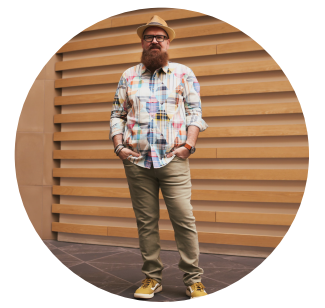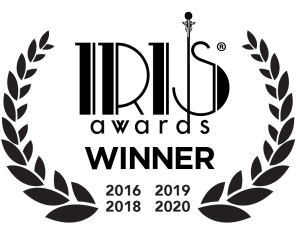I rarely give parenting advice. I’d much rather doodle a superhero or share cute pics of my kid than try to tell another parent how to do their job. But hey, it’s a pandemic, and I figure us parents can use all the help we can get. So I thought I’d share some extremely helpful information from the folks at Responsibility.org, with whom I recently partnered.
We’re about a month (or is it two?) into quarantine, and I’m sure we all have stories to tell — both humorous and harrowing — about how all this has affected our families. Early on I found my son sorting through his stuffed animals, putting some into a separate pile for quarantine. And while parents of multiple kids have my undying respect, having an only child has its challenges as well — the primary one being no one to play with. And the issues my ADHD son and I have had with “distance learning” are too numerous to list.
So how in the world do we as parents respond to our kids’ struggles, questions and emotions in the midst of something none of us were even remotely prepared to deal with? Below are a few helpful parental do’s and a don’ts that might come in handy.
● Be calm and confident. Or fake it as best you can!
● Be mindful of your conversations with other adults when your children are around. “Kid logic” will invariably fill in the gaps between what they know and what they hear.
● Reassure kids that things will eventually return to normal, while being honest that you don’t know exactly when.
● While your old schedules have been blown to bits, it’s important to create new routines so children can have a sense of normalcy and predictability.
● Kids are probably feeling even less in control than usual, so create opportunities for them to make choices — what you have for dinner, what board game you’ll play, which route to walk around the neighborhood, etc.
● Give clear, age-appropriate answers to your kids’ questions. Leave the political tirades to social media.
● Let your kids know that by staying home they’re doing their part to combat the virus. Social distancing is their super power!
● Make your home a safe space for your kids to talk about and experience their feelings, both positive and negative. Help them identify negative feelings (anxiety, frustration, boredom), and then discuss coping strategies.
.
● Don’t forget “me” time! Self-care is vital in order to do any of these. Be strong for them, but also for you.
● While we don’t want to terrify our kids, it’s also important not to make light of the situation. Humorous, sarcastic, or hyperbolic comments only serve to lessen the importance of the restrictions we’re all under. Flippant remarks can also send mixed messages about how dangerous the virus can be.
● Don’t make promises about things that are out of your ability to control.
● Do your best not to model negative coping strategies as you manage your own reactions to what’s going on.
That last one is a doozy. And one I’ve had to work on a lot — especially as it relates to drinking. We’ve all seen the memes or made jokes about how drinking is going to be the only way we get through months of having the kids at home. I even saw a mom in full protective gear buying two cases of wine at the liquor store, joking about how she had 3 kids and “needed all the help she could get.”
As I mentioned at the start, I’ve partnered with Responsibility.org for this post. I’m thrilled to be working with them all year, and will be covering a range of topics including positive role-modeling and helping kids navigate friendships. Yet as April is Alcohol Responsibility Month, I wanted to give special attention to how our words and actions related to alcohol influence our kids.
For me it’s all about mindset. While I typically wait until my son is in bed to have a cocktail, I still want to approach drinking as something positive to enjoy, not a way to “get through the day.” I also make sure a dirty martini isn’t my only form of self-care. Taking walks, zooming with friends and family and catching up on Netflix do just as much (or more) for my mental and physical health. An added bonus is that I can include my son in all those things, modeling ways for him to practice his own self-care.
One last recommended “DO” — find some time to talk to your kids about alcohol. An important fact: parents are the leading influence on a child’s decision to drink (or not drink). When conversations about alcohol between parents and kids go up, underage drinking goes down!
Responsibility.org is a national not-for-profit working to inspire lifelong responsible alcohol choices. Please check out their site for valuable info for parents with kids as young as 6-9 years all the way through college. If your kids are between 9-13, you might want to check out Responsibility.org’s underage drinking prevention program: Ask, Listen, Learn.
. . . . . . . . . . . . . . . . . . . . . . . . . . . . . . . . . . . . . . . . . . . . . . .
As a brand ambassador for Responsibility.org, I am being compensated to write this post. However, all opinions are my own.








